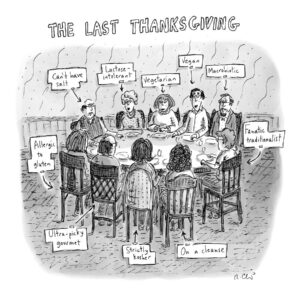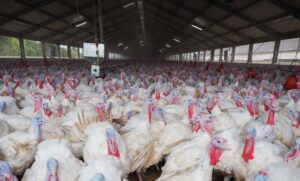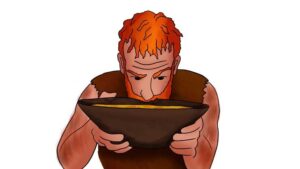Siman tov and Mazel tov to our very dear friends, trusted confidants, and more, Lemor and Murry Englard upon the engagement of their amazing son Mikey, to Tyler Schwartz, she the beautiful daughter of Yocheved and Marc Schwartz, they of Englewood New Jersey. We have known Mikey since birth (or just about) and have watched him grow up and develop into the man he is today. May Mikey and Tyler merit to enjoy this period in their lives and find happiness together for many decades to come.
And a double mazel tov shout out to our good friends Aliza and Shlomie Liechtung who find themselves in Los Angeles celebrating the birth of a baby granddaughter born to their children Yonina and Max Stern. Max, the son of other friends, Beth and Ronnie Stern. Welcome to the world Devorah Gittel (Gabriella) Stern; may you be source of nachas to your parents, grandparents and of course to your great grandmothers, Mrs. Shirley Schacter, and Mrs. Charlotte Liechtung. Givaldig!
And just as they were planning to stay in Los Angeles for another week or so, here in the Five Towns, a baby boy was born just yesterday to Daniella and David Liechtung. Welcome to the world baby Liechtung. Mazel tov to the parents, to grandparents Barbara and Shimmy Schwartz, to Aliza and Shlomie, and of course to the entire extended Liechtung family. Bris and other details to follow. Keep the good new coming.
Raboyseyee and Ladies,
Thanksgiving Expanded Edition
The Virgin & the Open Window
 A very happy Thanksgiving to all my readers. Ober are we Yiddin -especially those who attended yeshiva, allowed to celebrate this goyishe yom tov? And if we do, does the meal need to begin by a certain time? Before shkia? Before football? Must it end on time for football? In between games? Must we wash and make a motzti? Talk about the pilgrims? Sing songs? And what to do if one or more of your children, or guests, are vegan? Can one say omen to the brocho of the turkey eater? May one fulfil their turkey obligation with faux turkey? Must we mention that there were no jews in attendance at the first ever thanksgiving celebration way back in the 1600’s, and that now, kimat all Yiddin celebrate as if it was mamish a real yom tov? Their yom tov? So many questions. And the bottom line is azoy: whether or not we may partake depends mamish on whom you ask. Reb Moishe Feinstein, A’H offered no less than four responsa analyzing the permissibility of Yiddin observing Thanksgiving. And he said what? As the Ois reads his answers, he concluded that Thanksgiving is a simchas reshus, an optional, albeit nonobligatory, festive celebration. Case closed? Not. Because Rav Yitzchok Hutner, OBM took a more prohibitive stance, forbidding marking a holiday based on the Christian calendar. Grada, just this morning, the heylige Ois consulted four different Hebrew calendars -each having arrived in the mail from different organization in the weeks before Rosh Hashono- each of course seeking a donation. And guess what? All four had Thanksgiving Day clearly delineated on the 24th of November; today mamish.
A very happy Thanksgiving to all my readers. Ober are we Yiddin -especially those who attended yeshiva, allowed to celebrate this goyishe yom tov? And if we do, does the meal need to begin by a certain time? Before shkia? Before football? Must it end on time for football? In between games? Must we wash and make a motzti? Talk about the pilgrims? Sing songs? And what to do if one or more of your children, or guests, are vegan? Can one say omen to the brocho of the turkey eater? May one fulfil their turkey obligation with faux turkey? Must we mention that there were no jews in attendance at the first ever thanksgiving celebration way back in the 1600’s, and that now, kimat all Yiddin celebrate as if it was mamish a real yom tov? Their yom tov? So many questions. And the bottom line is azoy: whether or not we may partake depends mamish on whom you ask. Reb Moishe Feinstein, A’H offered no less than four responsa analyzing the permissibility of Yiddin observing Thanksgiving. And he said what? As the Ois reads his answers, he concluded that Thanksgiving is a simchas reshus, an optional, albeit nonobligatory, festive celebration. Case closed? Not. Because Rav Yitzchok Hutner, OBM took a more prohibitive stance, forbidding marking a holiday based on the Christian calendar. Grada, just this morning, the heylige Ois consulted four different Hebrew calendars -each having arrived in the mail from different organization in the weeks before Rosh Hashono- each of course seeking a donation. And guess what? All four had Thanksgiving Day clearly delineated on the 24th of November; today mamish.
As an aside, none of them mention Christmas or Easter. Vyst zich ois (it does than appear) that these and many other institutions do not believe that Thanksgiving is a Christian religious holiday. In the yeshiva velt here locally -and elsewhere- there is yeshiva but only for a half of the day. Is that normal? It’s either a holiday or not. Shoin, where is it written that we need to understand everything? Farkert! These conflicting views give us something to ltak about at the table. And then this: According to informed sources with whom the Ois checked -one that studied directly under Rav Joseph Soloveitchik for years -one of his top students ever, one that went on to become a 38-year pulpit rabbi and later author of 23 books, confirmed the following. Rav Joseph Soloveitchik, is reported to have had a habit of beginning his regular weekly Gemora lecture early on this day in order to travel to his sisters in time for Thanksgiving dinner. Rabbi Benjamin Blech -find his writings here https://www.rabbibenjaminblech.com/ confirmed that he heard this with his own ears.
The bottom line: Long before, thousands of years before the first ever thanksgiving dinner was cooked and eaten, and long before the day was established and set on our calendars -most of them- the heylige Toirah had already introduced us to the thanksgiving meal, the Korban Toidah. Says the heylige Toirah (Vayikro 7), “If he is bringing it as a thanksgiving offering, he shall offer, along with the thanksgiving offering unleavened loaves mixed with oil, unleavened wafers anointed with oil, and scalded flour mixed with oil. Along with loaves of leavened bread, he shall bring his offering along with his thanksgiving peace offering. And he shall bring from it one out of each offering, as a separation for the Lord; the kohen who dashes the blood of the peace offering it shall be his. And the flesh of his thanksgiving peace offering shall be eaten on the day it is offered up; he shall not leave any of it over until morning.” And now you know. The bottom line: Bible inspired entrepreneurs mistama turkey farmers (that is the correct term), inspired by their own English versions of their Bibles, created a new holiday for themselves and here we are: they beat us Yiddin to the punch. A gitten yom tov. Let’s review the upcoming parsha.

If the first few parshas of Bereishis left you scratching your collective heads when reading of the foibles involving Odom, Chava, the slithering snake, Kayin and Hevel, what may have happened to Noiach’s -if you chap- when his grandson sodomized, and or castrated him, how Loit abused his while impregnating his own two daughters -say it’s not so, but it was, how Avrohom’s lies twice led to Soro’s abduction into the harems of two different kings, and to Yitzchok’s near brush with death on the Akeydo, wait until you read this week’s heylige Parsha of Toldois which records the births of Yaakov -not yet Oveenu- and his twin brother Eisav. There’s more, much; read the parsha: it’s mamish givaldig!
A few weeks back, it was Avrohom who favored his younger son Yitzchok over his first-born son Yishmoel. In this week’s episode of parenting and favoritism among our beloved forefathers and mothers, it’s Rivka, Yitzchok’s eishes chayil and the only love of his life, that will favor one twin son over the other. In a few weeks we’ll come to learn that Yaakov, the beneficiary and the last of our forefathers, will also come to favor one son above the others; avada, we all know how that turned out. Why all this happened, ver veyst, but as the Ois has told you over and again, it’s seemingly what the RBSO wanted. All this odd behavior was part of His master plan; whatever the RBSO wants, the RBSO gets! Shoin!
Shoin, let’s review a few highlights. After twenty years of marriage without children, Yitzchok and Rivka take to praying. We assume they also tried other more conventional methods of conception. Rashi tells us that only Yitzchok’s prayers were answered; more on that below. The bottom line: Rivka conceived twins. Says the Radak that Yitzchok prayed intensely so that he would not have to take a second wife as did his father Avrohom. Could be! Or, is pshat farkert (opposite)? Was he efsher davening davka because he wanted a second wife as well as a few pilagshim (concubines) just like his father? Ver veyst?
Rivka struggled mightily during pregnancy; she was in constant pain. Says Rashi, who avada knew exactly what happened, that she went to see Shaim (Noiach’s eldest son) for answers. We’re taught that Shaim and his grandson, Eyver went into business together running the first ever Yeshiva; it is after all a business, isn’t it? Locally, where the heylige Ois resides and in many other burgeoning neighborhoods, there are almost as many yeshivas as there are nail salons; efsher more. At the yeshiva, Rivka was told -through prophecy- that her suffering is but a microcosmic prelude to the world-wide conflict that will ensue between the two great nations brewing in her belly— Rome and Israel. Mistama not what she expected or wanted to hear and one can imagine that such news didn’t ease her pain much. The boys are born, Eisav first, followed by Yaakov holding onto his brother’s heel.

And while men all over the world are fighting to get in, if you chap, Rashi also tells us that while the boys were still in Rivka’s womb, they fought to leave that pristine environment. Yaakov wanted to leave when his mother walked by a yeshiva, while Eisav -the minuvil in the making but seemingly still innocent- felt the need to exit when Rivka walked in the proximity of an idol and made a dash for the exit. Why Rivka walked by idols, ver veyst? Efsher you’re wondering why Yaakov would want to leave such a warm nurturing environment when another medrish tells us that during gestation and while inside the womb, a malach teaches the fetus the entire heylige Toirah? Isn’t a malach a better Rebbe than any human being? Taka an excellent kasha. Avada, answers are proffered and among the most popular is that he, Yaakov, was not happy with his chavrusa (study-mate) and wanted out. Gishmak!
The heylige Toirah tells us that Yitzchok and Rivka davened separately but that only his prayers were accepted. And says the medrish (Yalkut Shimoni) something mamish shreklich (shocking): when Yitzchok went looking but did not find evidence that Rivka was a virgin, he suspected that Eliezer, his trusted servant, of having deflowered his 3 or, 14 year old bride to be. What sort of evidence a 3-year old has, ver veyst? How could Rivka be either 3 or 14 at the same time? Why is the Ois suggesting that Rivka was either 3 or 14? Davka because there are differing opinions on her age. The bottom line: those questions for another day. Of course we have addressed these in past postings and feel free to check out the archives at www.Oisvorfer.com.
The bottom line: the conspiracy theory about the missing hymen would, or could explain why Yitzchok and Rivka davened separately; maybe they weren’t talking to each other? Ober, before we accuse Rivka falsely of such behavior at 3 or 14 years old, efsher we can explain pshat azoy: Rivka was completely innocent of the charges and that the reason that her prayers were not answered is because there was no need for prayer on her part: she was pure and innocent as any 3 or 14 year old should be. And taka because Yitzchok suspected her of foul play, she was already guaranteed by the RBSO through laws of the Soita (later in Parshas Nosi) that she would be rewarded and give birth; gishmak mamish! And for that reason and many others, it’s imperative to read the medrish; they were geniuses and had fantastic imaginations. Of course, our story of Rivka the virgin predates the heylige Toirah by many hundreds of years and the laws of Soita were only revealed to Moishe later, but hey, didn’t we learn that the heylige Ovois observed the entire Toirah anyway? Of-course we did. Shoin! Yitzchok suspected his 3 year old kallah of being chapped by Eliezer; she was innocent mamish, and according to the Toirah, one who is suspected falsely, is guaranteed to have children. And? According to this pshat, only Yitzchok needed to daven for children, and his prayers were answered. Unfortunately, this doesn’t answer why she had pain during her pregnancy since the lack of pain is also one of the rewards promised to those innocent of wayward-wife charges. On the other hand, where is it written that we have to have answers for everything in one parsha? Veyter!
Efsher you’re wondering why Rivka, feeling pain and angst went to a Yeshiva instead of scheduling a visit with her obstetrician; are you? Says the Medrish: Rivka Emainu went to the bais ha’medrish of Shaim’s Yeshiva because Shaim was a novee (prophet) and she figured that he would have givaldige insight into what was going on in her uterus. Ober there’s more to this story. Seemingly, Shaim was a great man, a spiritual giant who headed a yeshiva which catered to the people of that era who were actively seeking the word of the RBSO. Among the distinguished alumni of his yeshiva was none other than Yitzchok. He was? Did we read of his enrollment or attendance anywhere in the text of the heylige Toirah? We did not? What’s pshat that Yitzchok attended the yeshiva? When? Says Targum Yoinoson azoy: following the Akeydo where he nearly lost his life, the malochim (heavenly angels) whisked him away from the danger zone and enrolled him into Shaim’s Yeshiva -efsher for safekeeping- where he stayed for Shono Aleph, Beit and Gimmel- three years mamish. Was Yitzchok’s three-year stint the forerunner of the post high school yeshiva model of today where the administration tries hoodwinking the kids -and their parents- into believing that they need this extra time to work on themselves? Es ken zeyn (could be). Unfortunately, most kids are working on themselves since high school, if you chap. Wait: there’s more to the medrish. After seeing how well rounded and educated her husband was, she went to the same yeshiva to get answers about her pregnancy. Avada we all know from another medrish that following Shaim’s leadership, he passed the family business over to his grandson Ever who continued to grow the yeshiva. Next, another medrish will teach us that Yaakov Oveenu also enrolled in the very same Yeshiva. At the age of sixty-three, after leaving home with Eisav in hot pursuit, Yaakov went to Ever’s yeshiva and spent fourteen years there studying various life skills; trading soup for the birthright, playing dress up and fooling his father, and a few other tricks he would taka need later to deal with his trickster father in law Lovon. Ober chap nisht; that all goes down next week. What taka happened to that yeshiva, ver veyst? Some say that all was going well until some Rebbe got epes a shtikel too friendly with one or more bochurim (students), if you chap. Many years later, when the myseh became bavust (the abused student went public), the Rebbe was exposed, if you chap, and the Yeshiva -after massive judgments were levied against it- closed its doors. Veyter.
Efsher you’re wondering why good people have trouble having children when the average shiksa -as did Kitura at the end of last week’s parsha- become instantly pregnant? Why does the RBSO taka make these good people suffer? Why were ¾ of our Emohois (foremothers) barren for many years? What’s pshat? In recent weeks, we learned that Soro was childless till age 90, and in a week or so we’ll learn that mama Rochel didn’t nebech conceive until her older sister had a bunch. Why? Ver veyst? In the cases of Soro and Rochel, the husbands were not the issue; seemingly, they had no trouble seeding and impregnating other women. Ober, says the heylige Gemora that the RBSO desires the prayers of the righteous. He’s even happy when oisvorfs like you mumble a few words of prayer in shul during talking. The bottom line: though rational analysis suggests that our foremothers – mistama, more so than anyone else- deserved to have kinderlach, nevertheless, the RBSO showed that it had nothing to do with rational judgment and expectations. He’s in charge of di ganze velt (the entire world).
Back to the twins: They grow up. Some say this means they became bar mitzvah (givaldige speech material) and by this time their personality traits are quite apparent. Eisav is a hunter, a man of the field. Yaakov opts for the good and stress-free life in yeshiva, a model since emulated in Lakewood and other fine institutions where work is considered stressful and is strictly verboten. We’re taught Eisav was the bad guy. Why was one good and one bad? Is hunting so giferlich? Most of my male readers have been hunting and playing the field since their teens. Some, loi olaynu (say it’s not so) haven’t stopped. Shoin. And why was the bad one older so that the younger one had to shvindel (outwit) him in order to get what was necessary for him to fulfill the RBSO’s plan? Why couldn’t Yaakov be born first and get the firstborn rights from the get-go? Ver veyst? Who says we have to understand everything? You’ve got to believe; that’s all. Nu, back to the parsha.
The boys are now 15. Avrohom, their Zeidy dies. It’s the day of the levaya (funeral) and the story gets interesting. Yaakov is home cooking lentil soup, the traditional mourner’s meal. How traditional could it have been and who started this tradition, ver veyst? Next: Eisav, just back from hunting, was having a hard day. He’s ravenous. What’s pshat? Why was he taka so hungry? Nu, let’s find out. Says the heylige Gemora (Buba Basra 16b) azoy: On this day -the day Avrohom Oveenu passed away- this wicked man Eisav transgressed five sins. He raped a betrothed woman, he murdered someone, he denied the RBSO’s existence, he denied the resurrection, and he belittled the bechoira (birthright). Zicher, es lust zich redden (surely it stands to reason) why he’s ravenous on this day; he’s put in a full day’s work. Bedding a married woman, raping and killing can sap one’s energy. In fact, the medrish tells us that the main reason for his extreme exhaustion was as a result of cohabiting with that married woman. Seemingly, such extra martial activity can mamish sap one’s strength and also make one hungry. Efsher good enough reasons to abstain? Ver veyst? The bottom line: according to most, Eisav is a bad guy! Is that so? Avada not all agree that he was so giferlich. Says The Riva: it was common for hunters to wander around the forest in search of prey for as much as four days at a time. As a result, they would often arrive home in a state of total exhaustion, literally dying of hunger and thirst. In other words: he was just hungry; is that a crime? According to others, Eisav arrived home after having killed Nimroid for his special hunting-clothes. We wrote about Nimroid just a few weeks back; check it out. Nimrod’s men were chasing after Eisav in their efforts to avenge their master’s death. He had managed to shake them, but it had left him utterly spent. Maybe he was just a murderer and not a rapist; is that so giferlich?
 Ober (however) before we write him off completely, listen to another medrish which tells us that Eisav had excellent midos (character traits). He is considered the paradigm of virtuous behavior in the great, perhaps among the greatest of all 613 mitzvois – kibud Av Ve’Aim (honoring one’s parents). Moreover, the heylige Toirah tells us that his dad, Yitzchok, mamish loved him and that Eisav loved him back. He gave his father kovid (respect) and served him faithfully. Says the Zoihar -who knew better- that the power of Eisav’s kibud Av, was greater than that of his brother Yaakov. Says the Medrish: Reb Shimon ben Gamliel commented, “All my life I served my father, but I did not attain even one percent of the service performed by Eisav for his father. I was not particular about the cleanliness of my clothes when servicing my father. Only when I went out into the public eye did I take note of the condition of the clothes I was wearing. In contrast, Eisav was particular to serve his father in clean garments, but would not care if he walked into the market wearing rags.” Efsher that would explain why Yitzchok -later in the parsha- asked his favorite son to “go out to the field and hunt game for me, then make me delicacies such as I love, and I will eat, so that my soul may bless you before I die” (Bereishis 27:3-4). Ober chap nisht (patience please); that comes up later. Moreover, another medrish tells us that in reality, Eisav was supposed to be one of the Ovois (forefathers). Just as we had four Emohois (foremothers), so too, we should have had four Ovois; Avrohom, Yitzchok, Eisav, and Yaakov. Mamish?
Ober (however) before we write him off completely, listen to another medrish which tells us that Eisav had excellent midos (character traits). He is considered the paradigm of virtuous behavior in the great, perhaps among the greatest of all 613 mitzvois – kibud Av Ve’Aim (honoring one’s parents). Moreover, the heylige Toirah tells us that his dad, Yitzchok, mamish loved him and that Eisav loved him back. He gave his father kovid (respect) and served him faithfully. Says the Zoihar -who knew better- that the power of Eisav’s kibud Av, was greater than that of his brother Yaakov. Says the Medrish: Reb Shimon ben Gamliel commented, “All my life I served my father, but I did not attain even one percent of the service performed by Eisav for his father. I was not particular about the cleanliness of my clothes when servicing my father. Only when I went out into the public eye did I take note of the condition of the clothes I was wearing. In contrast, Eisav was particular to serve his father in clean garments, but would not care if he walked into the market wearing rags.” Efsher that would explain why Yitzchok -later in the parsha- asked his favorite son to “go out to the field and hunt game for me, then make me delicacies such as I love, and I will eat, so that my soul may bless you before I die” (Bereishis 27:3-4). Ober chap nisht (patience please); that comes up later. Moreover, another medrish tells us that in reality, Eisav was supposed to be one of the Ovois (forefathers). Just as we had four Emohois (foremothers), so too, we should have had four Ovois; Avrohom, Yitzchok, Eisav, and Yaakov. Mamish?
 Next: Eisav begs his only brother for some lentil soup that Yaakov is cooking. One would think that the yeshiva bochur would gladly feed his twin brother but the heylige Toirah tells us that Yaakov wasn’t in a giving mood, no freebies that day. Yaakov was a skilled negotiator and proposed a deal. Said Eisav: “Please, stuff me now with this red, red stuff, because I’m really tired. “He was shvach (weak), and about to pass out. All he wanted was to open his mouth and for the soup to be poured down his throat. One would think that a brother would do anything, even mouth to mouth, ober not Yaakov. Said he: “If you want hot liquid, sell me your birthright today.” Yaakov doesn’t need liquid soup, he wanted liquidity. He wanted the birthright and all that came with it! Said Eisav, “I’m going to die; what do I need this birthright for?” Said Yaakov: “Swear to me today.” They made the deal and since that day, and ad hayoim hazeh (until today), Eisav hates his brother and the rest of us Yiddin. All this hate for a bowl of soup? Yikes! Nu, can we really blame him?
Next: Eisav begs his only brother for some lentil soup that Yaakov is cooking. One would think that the yeshiva bochur would gladly feed his twin brother but the heylige Toirah tells us that Yaakov wasn’t in a giving mood, no freebies that day. Yaakov was a skilled negotiator and proposed a deal. Said Eisav: “Please, stuff me now with this red, red stuff, because I’m really tired. “He was shvach (weak), and about to pass out. All he wanted was to open his mouth and for the soup to be poured down his throat. One would think that a brother would do anything, even mouth to mouth, ober not Yaakov. Said he: “If you want hot liquid, sell me your birthright today.” Yaakov doesn’t need liquid soup, he wanted liquidity. He wanted the birthright and all that came with it! Said Eisav, “I’m going to die; what do I need this birthright for?” Said Yaakov: “Swear to me today.” They made the deal and since that day, and ad hayoim hazeh (until today), Eisav hates his brother and the rest of us Yiddin. All this hate for a bowl of soup? Yikes! Nu, can we really blame him?
Ober, we interrupt this amazing story of brotherly love with a sidebar story about Yitzchok having a shtikel run-in with Avimelech, King of Gerar. Yitzchok, like his father before him, was fearful that the king would desire his beautiful wife. Indeed, the king did just that. Beautiful women seemingly bring problems. Solution: marry ugly! Avada the Ois paskens differently. What to do? He lied and said of Rivka: hey- she’s my shvester (sister). Hmm, haven’t we heard that story before? Indeed, we have! Veyter. Ober this time the RBSO came to Avimelech in a dream and warned the good king about chapping with an eishes-ish (married woman) and to keep his royal scepter in his pants. Said Avimelech to the RBSO: I’m not guilty! Yitzchok said: she’s but his sister. The RBSO as a preventive measure, punished the good king and all his servants by preventing them from relieving themselves, and made them all impotent. Is it the same Avimelech who had Soro over for a night and then made the pact with Avrohom? Ver Veyst?
Post dream we are taught: “And it came to pass as his [Yitzchok’s] days there lengthened, that Avimelech, king of the Plishtim, gazed through the window and he saw and behold…” Avimelech figured out that Yitzchok and Rivka are really husband and wife. What’s pshat he gazed through the window? Was he a peeping tom? Was the window open? Would our than future forefather Yitzchok and our foremother Rivka be frolicking near an open window? Whose window was he gazing out of or into? What’s pshat here? Let us read the posik innaveynig (let’s read the text). Says the heylige Toirah (Bereishis 26:8), azoy: When some time had passed, Avimelech king of the Philistines looked through the window, and he saw Yitzchok being playful (the Hebrew is a word play on his name) with his wife Rivka. Why was Avimelech looking?
בראשית כו:ח וַיְהִי כִּי אָרְכוּ לוֹ שָׁם הַיָּמִים וַיַּשְׁקֵף אֲבִימֶלֶךְ מֶלֶךְ פְּלִשְׁתִּים בְּעַד הַחַלּוֹן וַיַּרְא וְהִנֵּה יִצְחָק מְצַחֵק אֵת רִבְקָה אִשְׁתּו.
Says the Keli Yokor, azoy: When some time had passed – for this reason, Avimelech began to think to himself, “If she really is his sister, then why hasn’t [Yitzchok] taken a wife during his long stay here? Certainly, this is not happenstance. For this reason, “Avimelech looked through the window” to ascertain the truth of the matter. And says the Ralbag mamish the same though he does not think that Avimelech witnessed sex, but only playful behavior.
ויהי כי ארכו לו שם הימים וגו’. לפיכך הרהר אבימלך בלבו לאמר אם באמת שאחותו היא אם כן למה אינו נושא אשה כל הזמן הארוך הזה הנה ודאי יש דברים בגו על כן וישקף אבימלך בעד החלון לראות מה טיבו ועניניו:

Whose window was Avimelech looking through? Does the heylige Toirah tell us? Not! What do we have as a result? A lacuna (one of the Ois’s favorite words); the story is ambiguous on this point. What happens next? Rashi and others now had literary license to proffer their own ideas on what went down. Let’s read veyter. Says Rashi, azoy: Avimelech was actually peeping into their window at their private quarters and that the couple were being intimate:וישקף אבימלך – ראהו משמש מטתו.
Shadal agrees and does not: he agrees the verse to mean Yitzchok and Rivka’s window, but assumes that Avimelech was not peeping, but rather that the window was easily accessible to anyone on the street and Avimelech just happened to see them. He just happened to be strolling by and there he mamish caught Yitzchok and Rivka in the act. He says that Yitzchok was being playful with his wife– frolicsome behavior that a decent person does not do with his sister. On the other hand, is it possible to believe Yitzchok was having sex in an easily visible place such that someone sitting in his own house or passing by on the street could see through the window?
מצחק את רבקה אשתו – מעשי געגועים שאין אדם כשר עושה עם אחותו (אך אין להאמין שהיה יצחק משמש מטתו במקום שהיה אפשר ליושבי בית אחר או לעוברי דרך לראותו בעד החלון).
So far, we have two exegetes stating that the action took place at Yitzchok’s window, ober since the heylige Toirah did not specifically delineate that the action was there, the posik could also be read to imply that Avimelech saw them through his own window. Efsher the window was elsewhere? The definite article suggests a specific window, most likely the one in the outer court of the royal palace, at which the king showed himself to the people on ceremonial occasions. And taka says the medrish (Das Mikra), azoy: “Through the window” can be interpreted in two ways: One way is “through the window of his house or palace.” The other is “through the window of Yitzchok’s house.” The use of the modifying phrase “king of the Philistines” comes to clarify that the looking was done from Avimelech’s own house/palace.
בעד החלון סובל שתי פירושים: האחד בעד חלון ביתו=ארמונו, והאחר בעד חלוק ביתו של יצחק…. והכינוי מלך פלשתים בא להטעם שההשקפה היתה מארמון ביתו.
This possibility is strengthened when we remember that palaces are large, with large windows, often high up. Thus, Avimelech would have had a grand view of many houses. And says another medrish (Sechel Tov) azoy: the verb used regarding Avimelech’s looking, וישקף, often has the connotation of looking down: The term haskofo always implies from above to below.אין השקפה אלא מלמעלה למטה
What’s the difference you ask? Whosever window it was, the point was that Avimelech chapped that Yitzchok and Rivka were not brother and sister. Shoin, it so happens that the heylige Gemora (Buba Basra 3:7) -efsher inspired by the windowgate scandal, discusses and teaches of the legal implications of making or enlarging a window over a neighbor’s courtyard. It deals with the very concern we come across in the Avimelech/Yitzchok/ Rivka windowgate myseh.
לא יפתח אדם לחצר השותפין פתח כנגד פתח וחלון כנגד חלון
In a joint courtyard, a person may not make a door facing another person’s door or a window facing another window. Why not? The concern here is that such an opening would infringe on a neighbor’s right to privacy, a concept known in Rabbinic literature as “damage through seeing” (היזק ראייה). Our sages were concerned with the distinction of the public (רשות הרבים) and private (רשות היחיד) domains and how they impinge upon each other.
On the other hand, Avimelech’s use of the window may have saved him from the RBSO’s wrath. Once he saw Yitzchok and Rivka being playful, if you chap, he chapped that he had been tricked and understood the complete picture, preventing him from committing adultery. The open window granted him access to new and correct knowledge of the realities of their household.
The bottom line: On the one hand, the window allows and sometimes invites the outsider or viewer to intrude into the private space of someone else and satisfy their curiosity or even prurient interest. Looking, either through a window or from the rooftop can lead to trouble. Let us recall the trouble Dovid Hamelech got himself into when he looked at Batsheva from his rooftop. Says the heylige Novee (2 Shmuel: 11:2), azoy:
שמואל ב יא:ב וַיְהִי לְעֵת הָעֶרֶב וַיָּקָם דָּוִד מֵעַל מִשְׁכָּבוֹ וַיִּתְהַלֵּךְ עַל גַּג בֵּית הַמֶּלֶךְ וַיַּרְא אִשָּׁה רֹחֶצֶת מֵעַל הַגָּג
“Late one afternoon, Dovid rose from his couch and strolled on the roof of the royal palace; and from the roof he saw a woman bathing…you know the rest. Rise he did! It’s avada good to be the king; once can see and then immediately act.
A gittin Choidesh and a gittin Shabbis
The Heylige Oisvorfer Ruv
Yitz Grossman
